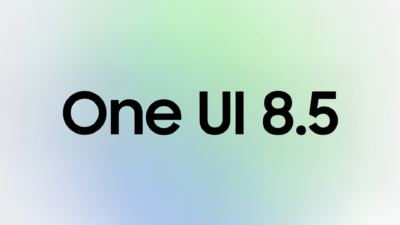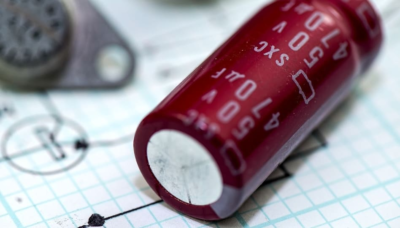Why Bank Accounts Are Essential for Effective Money Management

Money management is one of the cornerstones of personal financial success. Without effective management, it’s easy for individuals to feel overwhelmed or lost in a sea of expenses, debts, and goals. One of the most fundamental tools in any money management strategy is a bank account. Whether it’s a checking account for everyday transactions or a savings account for long-term goals, understanding the role of bank accounts in managing money is crucial. In this article, we’ll explore why having the right bank accounts is vital and how to leverage them for better financial control.
1. Bank Accounts Provide Safety and Security for Your Money
In today’s world, keeping large sums of cash at home is neither safe nor practical. A bank account provides a safe place for your money, offering protection from theft, loss, or damage. Most banks are insured by the Federal Deposit Insurance Corporation (FDIC), meaning that your money is guaranteed up to $250,000 per depositor, per insured bank.
This safety net gives account holders peace of mind, knowing their money is secure and easily accessible when needed. Moreover, modern banking services offer added layers of security through online banking, mobile apps, and encryption technologies, ensuring that your money is safe from fraud or unauthorized access.
2. Bank Accounts Help You Track and Manage Your Spending
One of the greatest benefits of having a bank account is the ability to track your financial transactions. Each time you make a payment, deposit, or withdrawal, the transaction is recorded in your account, creating a clear, real-time picture of your spending habits. With many banks offering online banking platforms, you can access this data anytime, anywhere.
This ability to track expenses can help you stay within your budget and identify spending habits that may need adjustment. For example, if you notice frequent small purchases that add up to a significant amount over the month, it’s a sign that you might need to reduce certain non-essential expenses. Having detailed records makes it easier to make informed financial decisions, and this transparency is key to effective money management.
3. Bank Accounts Facilitate Saving for Future Goals
Savings accounts are essential tools for anyone looking to build an emergency fund, save for a vacation, or prepare for major life expenses such as buying a home or retirement. By opening a savings account, you can separate funds earmarked for specific goals from the money you use for everyday spending. This separation makes it less likely that you’ll dip into savings for unplanned expenses.
Additionally, savings accounts typically offer interest, which allows your money to grow over time. The more you deposit, the more your balance increases, making it a great way to build wealth passively. While the interest rates may vary, they still provide a higher return than simply letting your money sit idle in a non-interest-bearing account.
If you’re looking for an easy way to grow your savings, consider using automatic transfers to regularly deposit money into your savings account. This method makes saving a habit and reduces the temptation to spend those funds.
If you’re looking to start saving with an online bank, it’s easy to open an online savings account. Online savings accounts often come with higher interest rates and lower fees compared to traditional brick-and-mortar banks.
4. Bank Accounts Make It Easier to Pay Bills and Manage Cash Flow
Managing cash flow is a critical aspect of money management, and bank accounts make it easier to keep track of how much money is coming in and going out. Many banks offer bill pay services, allowing you to schedule and automate payments for recurring expenses such as utilities, rent, or subscriptions. This automation reduces the risk of late payments, saving you from penalties and interest charges.
Additionally, having a bank account simplifies the process of receiving income, whether it’s your salary, freelance payments, or government benefits. With direct deposit, you can receive your payments quickly and securely, with the funds often available in your account within hours.
If you have multiple bills due at different times, consider setting up your bank account to pay each one on a specific date, ensuring that you stay ahead of deadlines and maintain a positive cash flow.
5. Bank Accounts Offer Financial Products to Help You Grow Your Money
In addition to the standard checking and savings accounts, many banks offer a variety of financial products designed to help you grow your wealth. These can include certificates of deposit (CDs), retirement accounts such as IRAs, and investment accounts. By utilizing these products, you can take advantage of higher interest rates, tax benefits, and growth potential.
For instance, if you want to save for retirement, opening an IRA through your bank is an excellent way to take advantage of tax-deferred or tax-free growth, depending on the type of IRA. Even small contributions can add up over time, especially when combined with the power of compound interest.
These financial products are beneficial because they allow you to diversify your savings and investments, which can be an essential strategy for building long-term financial security. By taking advantage of what your bank offers, you can ensure your money is working harder for you.
For more insights on financial products, visit Investopedia’s guide on savings accounts and investments.
6. Bank Accounts Help Build Credit History
Establishing and maintaining a good credit history is crucial for accessing favorable financing terms when you need loans or credit. Bank accounts, especially those linked to credit products like credit cards or personal loans, play a significant role in building your credit score.
When you responsibly manage your checking account and pay bills on time, it reflects positively on your financial reliability. Moreover, many banks offer credit-building products that can help improve your credit score over time, such as secured credit cards or credit-builder loans.
Building a positive credit history through bank accounts is not just about borrowing; it’s also about demonstrating your ability to manage money responsibly, which can open doors to better financial opportunities in the future.
7. Bank Accounts Offer Convenience and Accessibility
The convenience of modern banking cannot be overstated. With online banking, mobile apps, and ATMs available 24/7, you can access your funds and manage your money from anywhere. Whether you’re making a transfer, checking your balance, or depositing a check, it’s easy to stay on top of your finances with just a few clicks or taps.
Additionally, the ability to access funds quickly via ATMs or debit cards makes bank accounts ideal for daily use. If you need cash, you can simply withdraw money from an ATM. If you need to make a purchase, you can use your debit card instead of carrying large amounts of cash.
Conclusion
Bank accounts play a crucial role in money management. They provide security, offer tools for tracking and managing spending, facilitate saving and investing, and help you manage cash flow effectively. With the right bank accounts, you can set yourself up for financial success, build wealth, and make managing money much easier.
Alexia is the author at Research Snipers covering all technology news including Google, Apple, Android, Xiaomi, Huawei, Samsung News, and More.










